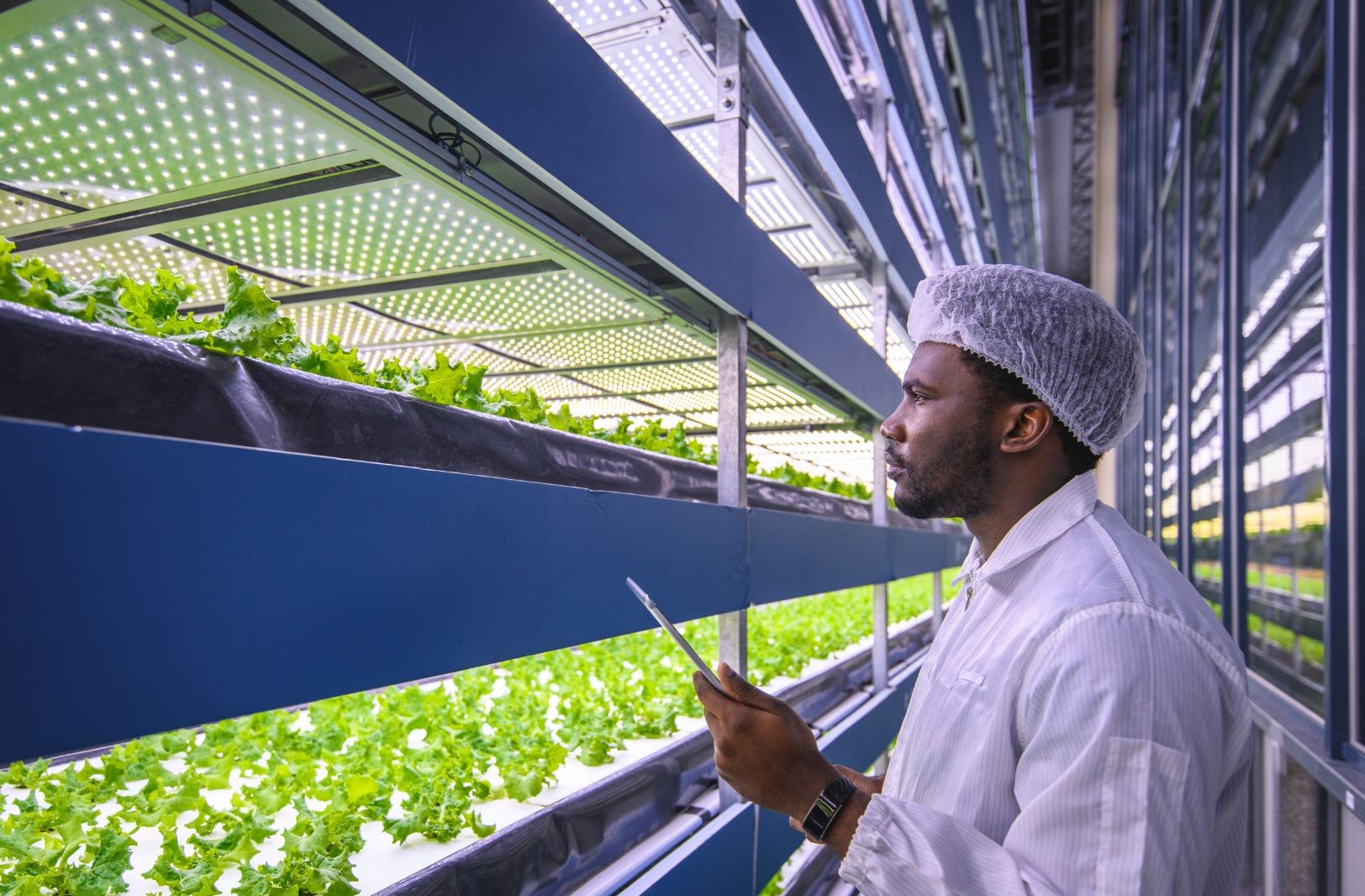Best Practices for Successful Hydroponics and Crop Circle Farming
For farmers looking to venture into hydroponics and crop circle farming, adopting best practices is crucial for success. Attention to factors like nutrient balance, pest management, and climate control ensures optimal yields and long-term sustainability.
Guidelines for Implementing and Managing these Farming Methods
1. Hydroponics
- Choosing the Right System: There are various types of hydroponic systems available, including Deep Water Culture (DWC), Nutrient Film Technique (NFT), and Ebb and Flow. Select a system that aligns with your space, budget, and crop requirements.
- Nutrient Solution Management: Regularly monitor and adjust the nutrient solution to ensure that plants receive the right balance of essential nutrients. Maintain pH levels within the optimal range to promote nutrient uptake and avoid nutrient deficiencies.
- Light and Temperature Control: Provide adequate light for plant growth, either through natural sunlight or artificial lighting. Monitor and regulate the temperature to ensure that it remains within the optimal range for the specific crops being grown.
- Crop Selection: Choose crop varieties that are well-suited for hydroponic cultivation. Leafy greens, herbs, and small fruiting plants like tomatoes and strawberries are commonly successful in hydroponic systems.
- Disease and Pest Management: Implement preventive measures to minimize the risk of diseases and pests. Use biological controls and integrated pest management (IPM) strategies to address any pest issues that may arise.
2. Crop Circle Farming (Conservation Agriculture):
- Minimal Soil Disturbance: Avoid excessive tilling and plowing to preserve the soil structure and its beneficial microorganisms. Implement no-till or reduced-till practices to maintain soil health and prevent erosion.
- Permanent Soil Cover: Keep the soil covered with mulch, cover crops, or crop residues at all times to protect it from erosion and maintain soil moisture.
- Crop Rotation and Diversity: Rotate crops to improve soil fertility and break pest and disease cycles. Embrace crop diversity to enhance biodiversity, promote natural pest control, and improve overall ecosystem health.
- Water Management: Efficiently manage water resources through proper irrigation techniques, such as drip irrigation or rainwater harvesting. Avoid overwatering to prevent waterlogged soils and nutrient leaching.
Tips for Maximizing Yields and Efficiency
1. Hydroponics:
- Regular Monitoring: Monitor the hydroponic system regularly to identify and address any issues promptly. This includes checking nutrient levels, pH, temperature, and water quality.
- Proper Lighting: Ensure that plants receive the right amount of light each day. Adjust the height and intensity of artificial lights to match the specific crop’s light requirements.
- Timely Harvesting: Harvest crops at the optimal stage of maturity to achieve the best flavor and nutritional value. Prompt harvesting also encourages continuous plant growth.
- Water and Nutrient Management: Avoid overfeeding plants with nutrients, as it can lead to nutrient imbalances and hinder growth. Maintain a balanced nutrient solution for each growth stage of the plants.
2. Crop Circle Farming:
- Adequate Mulching: Apply a sufficient layer of organic mulch to cover the soil surface thoroughly. This helps retain moisture, suppress weeds, and enhance soil fertility.
- Cover Crop Selection: Choose cover crops that complement the main crop and provide additional benefits, such as nitrogen fixation or pest repellence.
- Proper Crop Spacing: Ensure appropriate spacing between plants to prevent overcrowding and competition for resources.
- Soil Testing: Regularly test the soil to assess its nutrient levels and pH. This information can guide you in making informed decisions about fertilization and soil amendments.
By following these best practices, farmers can maximize yields, promote sustainability, and ensure the successful implementation of hydroponics and crop circle farming. These methods hold the potential to revolutionize agriculture in South Africa, contributing to food security, environmental preservation, and the empowerment of local communities.
Empowering Local Communities through Hydroponics and Crop Circle Farming
Potential for Job Creation and Skill Development
- Job Creation: Hydroponics and crop circle farming have the potential to generate employment opportunities in local communities. These innovative farming methods require skilled labor for setup, operation, and maintenance of the systems. As farmers adopt these techniques, there will be a demand for workers to manage the hydroponic units, monitor plant health, and oversee the overall farming process. Additionally, the introduction of value-added activities such as packaging, marketing, and distribution of hydroponic produce can create more jobs along the agricultural value chain.
- Skill Development: Hydroponics and crop circle farming necessitate specialized knowledge and technical expertise. As local communities embrace these sustainable practices, there is an opportunity to invest in skill development and training programs. Workshops, vocational courses, and on-the-job training can equip community members with the knowledge and capabilities to become skilled hydroponic farmers. This not only empowers individuals with valuable skills but also strengthens the overall human capital of the community.
Enhancing Food Security and Community Engagement
- Food Security: Hydroponics and crop circle farming offer the advantage of year-round production and improved crop yields. In regions where climate conditions and arable land availability might limit traditional farming, these innovative techniques provide an opportunity to grow fresh produce consistently. By ensuring a steady supply of nutritious food, local communities can enhance their food security and reduce dependence on external sources for fruits and vegetables.·
- Community Engagement: Hydroponics and crop circle farming projects often involve community participation and collaboration. These initiatives can bring together local farmers, youth, and community organizations to work towards a common goal. Community engagement in sustainable farming fosters a sense of ownership and responsibility for the environment and its resources. As individuals come together to cultivate and harvest crops, a strong sense of community pride and cohesion can develop.
- Empowerment of Women and Youth: Hydroponics and crop circle farming can be particularly empowering for women and youth in rural communities. By breaking away from traditional gender roles and offering opportunities for skill development, these sustainable farming practices empower women to take on leadership roles in agriculture. Additionally, engaging youth in modern and technology-driven farming techniques can spark interest and innovation, inspiring the next generation of agricultural entrepreneurs.
- Social and Economic Growth: As local communities embrace hydroponics and crop circle farming, economic growth is potential through increased agricultural productivity and enhanced market access. The surplus produce can be sold locally, contributing to the community’s economic prosperity. Moreover, the development of sustainable farming initiatives can attract investment and support from various stakeholders, further bolstering the region’s socio-economic development.
Hydroponics and crop circle farming offer much more than just innovative farming techniques; they represent a pathway toward empowering local communities in South Africa. By creating jobs, fostering skill development, enhancing food security, and encouraging community engagement, these sustainable practices bring forth a multitude of benefits for both individuals and society. As the nation moves towards a more sustainable and inclusive future, embracing hydroponics and crop circle, farming can play a pivotal role in empowering local communities and driving positive change in the agricultural landscape.
References:
- National Development Plan (NDP) https://www.gov.za/issues/national-development-plan-2030
- Comprehensive Agricultural Support Program (CASP) http://www.old.dalrrd.gov.za/Programmes/Comprehensive-Agricultural-Support-Programme
- AgriBEE IT PORTAL http://webapps.daff.gov.za/AgriBEE/
- NAMC | National Agricultural Marketing Council: https://www.namc.co.za/
- https://www.growingtogive.org/south-africa.html
- https://www.nutrientgreen.com/hydroponic-lettuce/
Further reading
How Crop Circle Farming and Hydroponics can help Farmers in South Africa
South African Government Initiatives and Support for Sustainable Agricultural Practices
Best Practices for Successful Hydroponics and Crop Circle Farming
The Potential for Combining Hydroponics and Crop Circle Farming with Traditional Practices











































































